Misery Is Stephen King’s Most Important & Painfully Underrated Adaptation
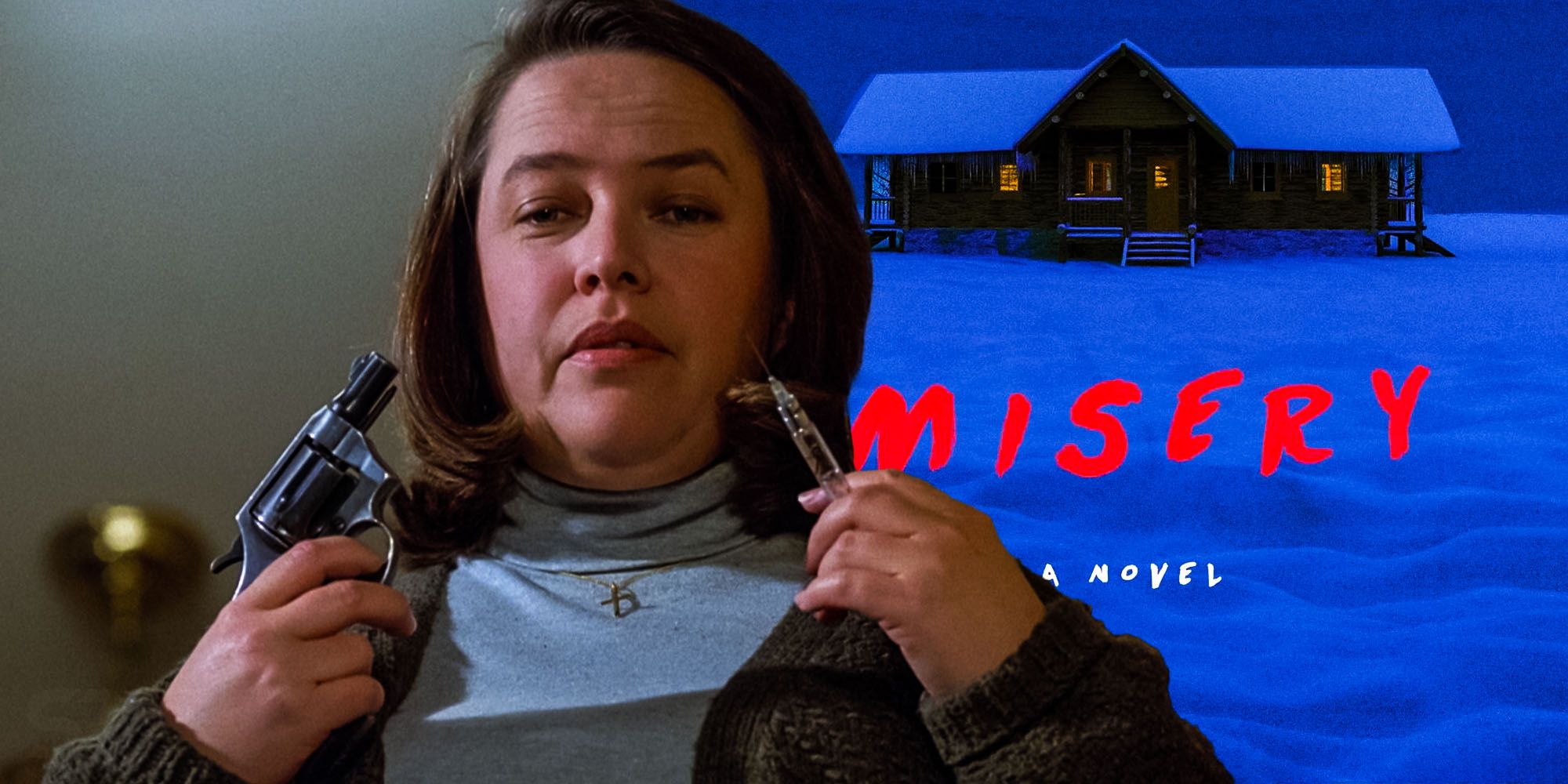
The works of Stephen King are currently enjoying something of a renaissance, but one of the writer’s best adaptations, Misery, remains criminally underrated. Horror icon Stephen King has remained almost perennially popular since his massively successful debut novel Carrie was released in 1974. While Carrie was a huge hit with readers, it was The Shining that soon cemented King’s status as a major voice in American horror fiction with critics.
However, King’s work has not always translated well to the screen over the decades. For every huge hit like 2017’s teen horror blockbuster It, there is a comparative critical failure like its plot-hole-ridden sequel It: Chapter 2. Similarly, though, for every poorly-received King adaptation that flops with critics, there are underrated gems in the author’s back catalog that rarely get the credit they are due. One such movie is 1990’s Misery which, despite earning an Oscar for its leading lady, remains underrated among fans of the author’s work even though King himself called it one of his favorite adaptations of his work.
More grounded than It, more personal than Carrie, and more humane than The Shining, 1990’s Misery is one of King’s most underrated adaptations. Directed by Stand By Me’s Rob Reiner and written by The Princess Bride’s William Goldman, Misery was a box office success upon release, earning over $60 million on a budget of $20 million. Although the psychological thriller did earn great reviews, it rarely appears on lists of King’s best movies despite beating even Kubrick’s version of The Shining to become the only adaptation of the author's work to earn an Oscar. The success of Misery came down largely to great casting and the story’s intense personal relevance for King, as well as some fortunate changes to the source material.
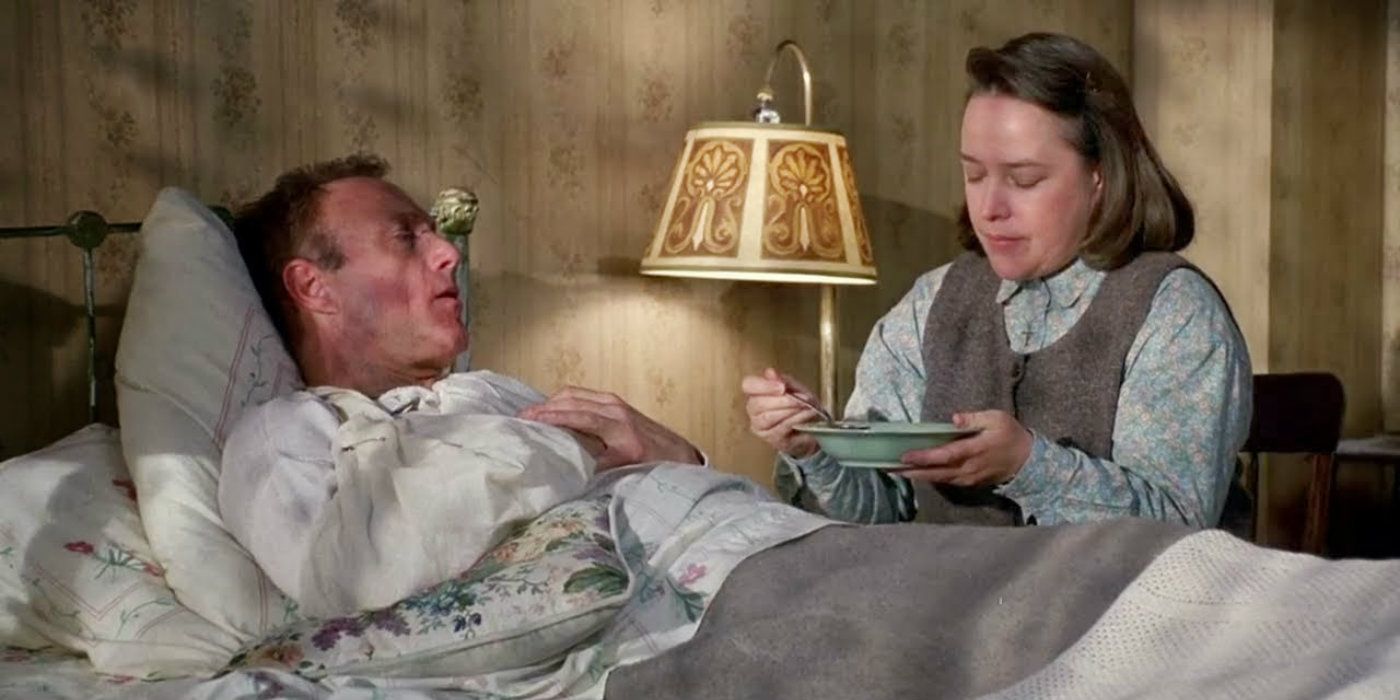
The story of a writer left at the mercy of a crazed superfan, Misery is an intensely personal novel for King. While many readers assumed the story is about the perils of fame and the difficulties of pleasing a fickle fanbase, the unhinged superfan Annie Wilkes actually represents King’s cocaine dependency at the time. Constantly talking up the incapacitated writer and boosting his ego while also isolating him from loved ones and eventually literally hobbling his recovery, Wilkes is a legendary screen villain because she is both very human and an effective metaphor. Originally, Addams Family star Angelica Huston was offered the role, as was Better Middler, but both stars turned down the part and paved the way for relative unknown Kathy Bates to take it on. However, casting Annie proved comparatively easy. The role of bed-bound writer Paul Sheldon was offered to a string of stars including Harrison Ford, Robert Redford, Dustin Hoffman, Robert DeNiro, Al Pacino, Richard Dreyfuss, and Michael Douglas (among others) before James Caan finally accepted the part.
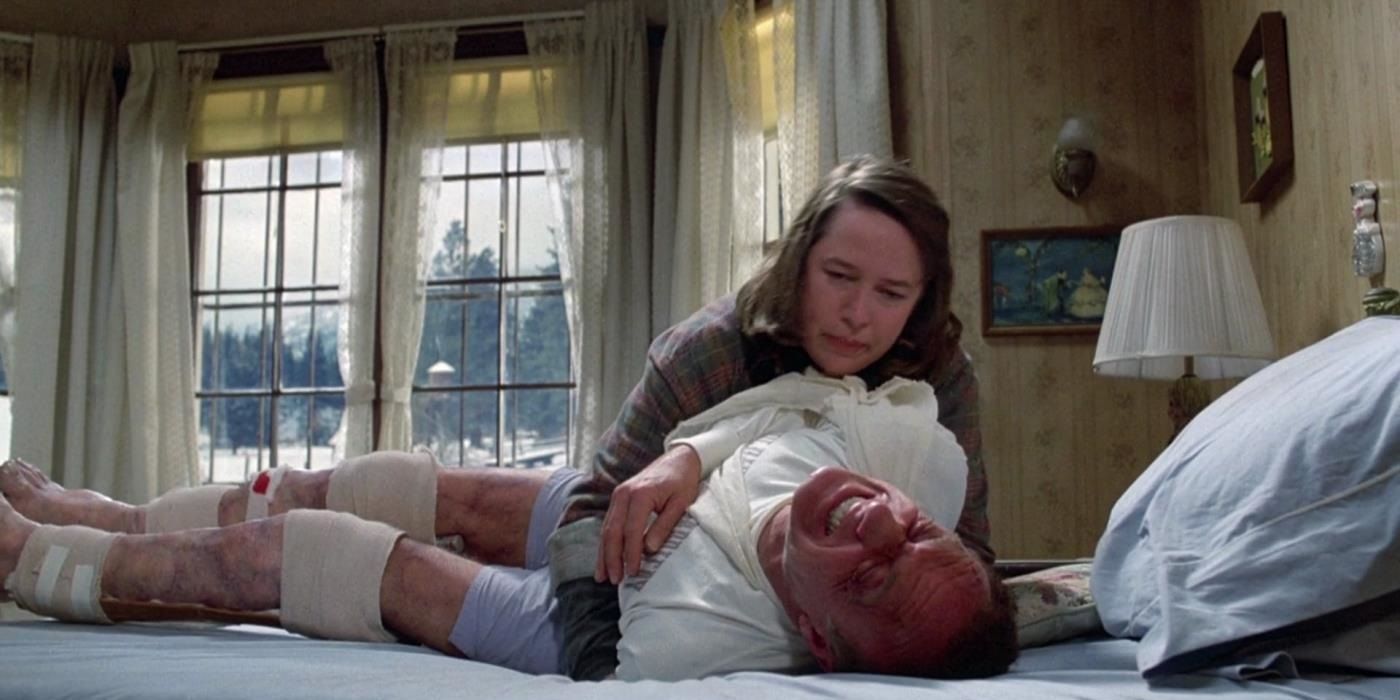
The choice to have Annie hobble Paul with a sledgehammer instead of severing his feet was one that upset Goldman, who initially refused to allow the alteration. King’s changes to The Stand miniseries adaptation almost saved the deeply flawed show, but the writer also wrote a television version of The Shining that was far inferior to Kubrick’s movie, so it is hard for producers to tell whether changing King’s work would be a net benefit or loss for their adaptation. However, in the case of Misery, even Goldman himself was glad that the filmmakers didn’t listen to his protests in the end. When he watched the movie, the screenwriter admitted that the novel’s gorier version of events would have ruined the movie, and Misery’s alterations were ultimately for the better.
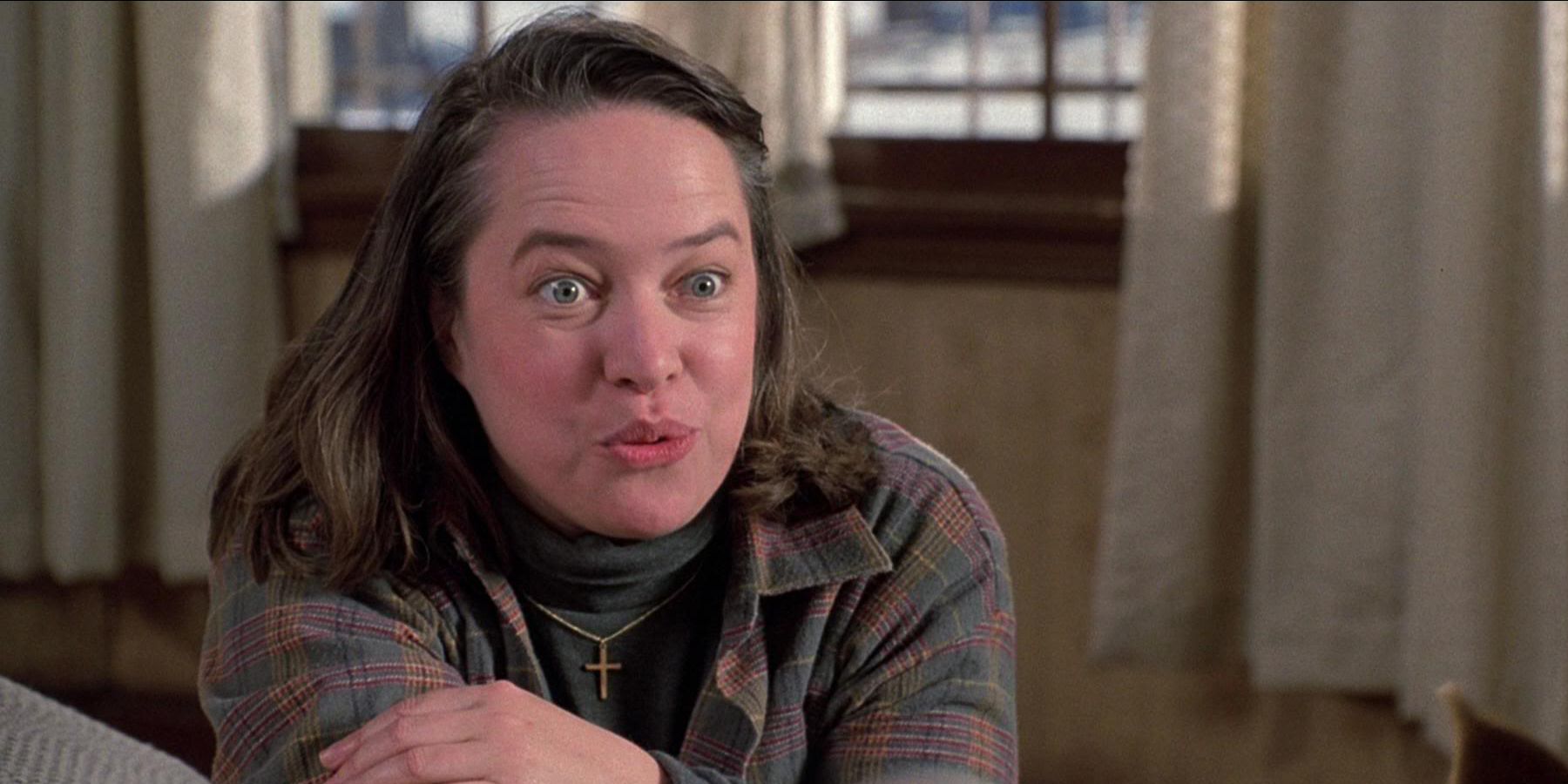
Few reviewers at the time or since have noted it, but the fact that Kathy Bates’ lonely Annie Wilkes and James Caan’s charismatic Paul Sheldon have real chemistry early on in proceedings is what makes Misery so devastatingly effective as a psychological thriller. Where Stephen King villains from Pennywise to Randall Flagg make their monstrous evil known early on, Annie elicits real sympathy from the viewer when she is tending to Paul and awkwardly trying to win over her reticent patient. Before Paul realizes the extent of Annie’s madness, he’s initially taken with her quirks, and Bates makes the character a sympathetic figure for viewers who do not know the famous twist.
In an era when many comparable psychological horror movies from Basic Instinct to The Hand That Rocks The Cradle made it immediately obvious how unhinged and potentially dangerous their villainesses were, Misery makes the canny decision to cast Annie as an oddly endearing character at first. This also serves to make the character’s status as a stand-in for drug addiction more compelling, as she isn’t depicted as an obvious danger but instead as something harmless that later proves lethal. It is easy to see how a massively successful author like Stephen King could think his drug habit is harmless, much like it is easy to imagine viewers — and Paul — thinking that Annie is nothing more than a likable eccentric until it is too late.
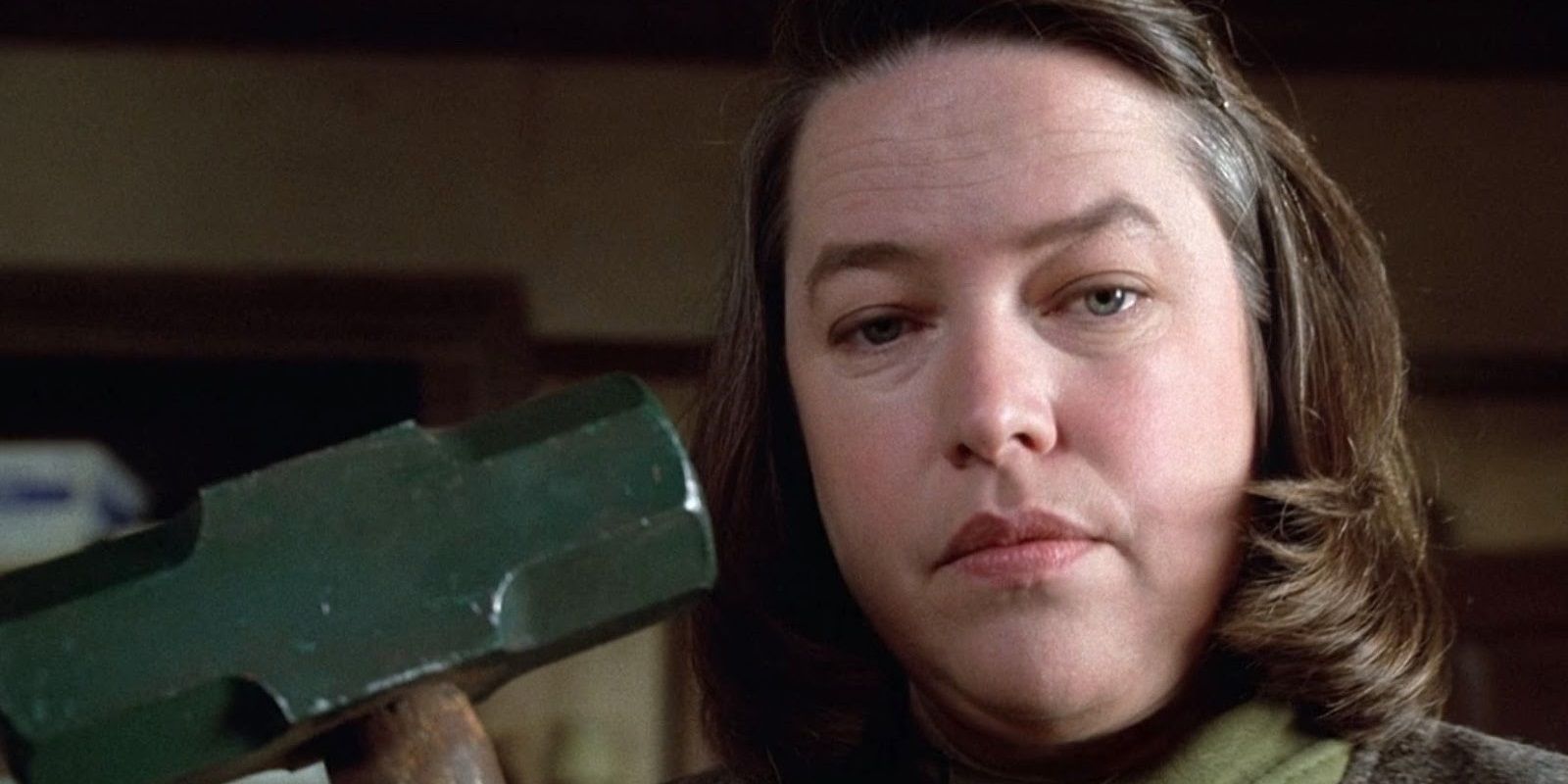
Although she won an Oscar for her performance, the effectiveness of Kathy Bates’ portrayal of Annie Wilkes still can’t be overstated. Misery’s success hinges entirely on her switching seamlessly between saccharine sweet and sociopathic, and Bates manages this with ease in one of her earliest screen roles. What makes the part the role of a lifetime, however, is the actor’s ability to find real heart underneath the deeply broken character’s cheery facade. It is an extraordinary turn aided by the chemistry she shares with Caan early on and results in Misery becoming one of the most underrated of King’s many screen adaptations. The enduring popularity of the performance resulted in it being referenced in areas as unexpected as a pair of unrelated Kanye West and Lil Wayne verses during 2008 and 2010, both of which include nods to Bates’ Wilkes specifically. Even legendary hip hop acts recall Bates’ unparalleled work in the role as a highlight of the psychologic horror, and the fact that the Stephen King adaptation was still a relevant reference decades after its release just proves how influential and underrated Misery is.
No comments: